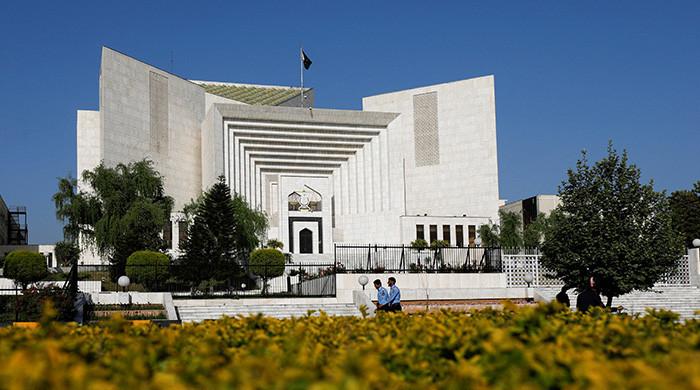Karachi court quashes FIR against PML-N's Captain Safdar
Maryam Nawaz's husband, Awan, was accused of violating sanctity of Quaid-e-Azam's mausoleum
November 18, 2020

KARACHI: A judicial magistrate on Wednesday quashed the first information report (FIR) against Captain (retd) Safdar Awan after categorising the case as "C class".
The police complaint had accused Awan, husband of PML-N vice-president Maryam Nawaz and son-in-law of former premier Nawaz Sharif, and a cohort of party supporters to have violated the sanctity of Quaid-e-Azam's mausoleum by chanting political slogans and intimidating people.
On October 19, Sindh Police arrested Awan from his hotel room early morning causing a political uproar. He was granted post-arrest bail the same day.
On November 9, the investigating officer (IO) submitted an amended charge sheet before the judicial magistrate. He and the special public prosecutor then recommended the court to declare the case as “B class”.
Today, the judicial magistrate rejected the police's recommendation to categorise the FIR as “B class” and quashed it as “C class”.
Read more: Rangers, ISI officers involved in 'Karachi incident' removed
The aftermath of Awan's arrest
Awan's arrest sparked outrage from opposition parties and the Sindh government claiming Sindh IGP Mushtaq Mahar was 'abducted' and forced to act against the PML-N leader.
This ensued a court of inquiry, ordered by Chief of Army Staff General Qamar Javed Bajwa. On November 10, the Inter-Services Public Relations (ISPR) said some officials of the Inter-Services Intelligence and Pakistan Rangers (Sindh) were removed from their posts pending further departmental proceedings for acting 'overzealously'.
What is a C class FIR?
There are three classes of the FIR - A, B, and C.
When the FIR is true but the accused persons cannot be traced, the report is classified as A-class while B class means the complaint was found to be "maliciously false".
In C class, the FIR is disposed of as being a non-cognizable offence - meaning the criminal case was filed due to a mistake of fact or the offence is of civil nature.











